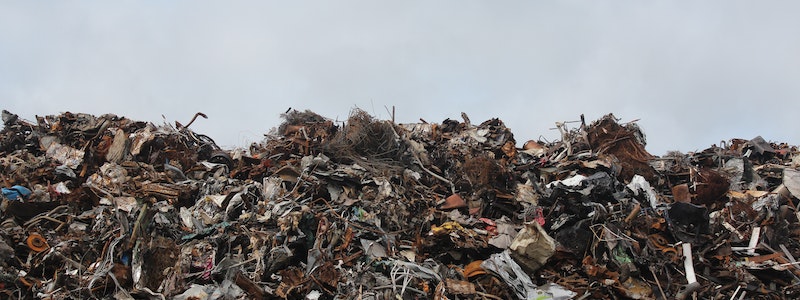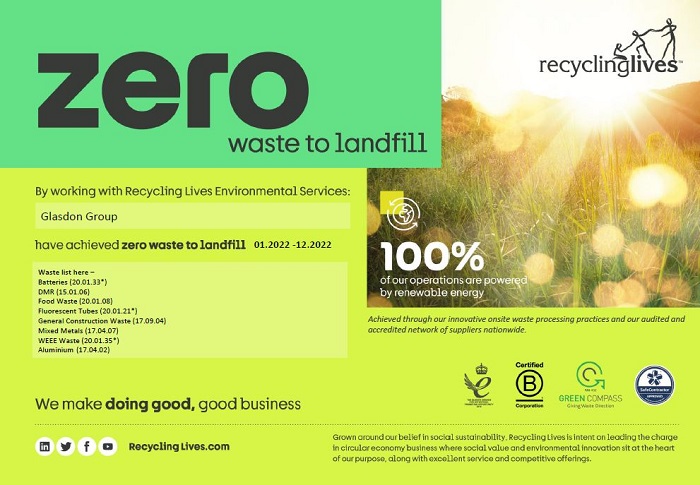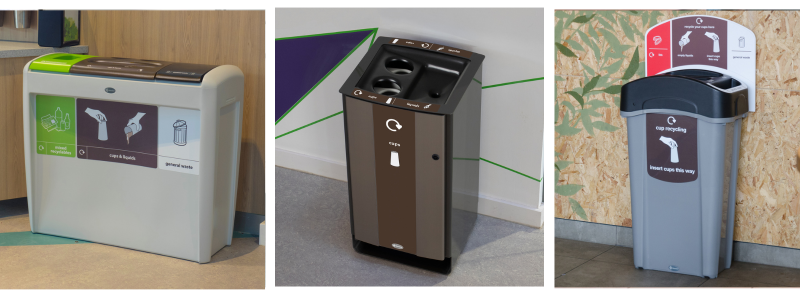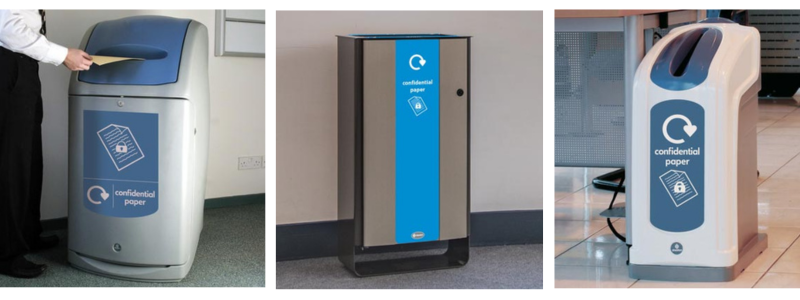For society to reach the goal of restricting global warming and transitioning to a sustainable circular economy model, reducing reliance on landfills is essential. One approach which encompasses this idea is Zero Waste to Landfill.

The world is facing the repercussions of climate change, exacerbated by inadequate waste management and the effects of landfills. To combat this, organisations are embarking on initiatives to decrease waste production and promote responsible disposal practices. Unsurprisingly, companies are finding value in reducing their waste. In order to properly manage this, organisations are first required to audit their waste. Creating a clear picture of the types of waste that an institution produces will help them achieve their waste goals.
Organisations seeking to reduce their environmental footprint can benefit greatly from Zero Waste initiatives, and in particular - Zero Waste to Landfill programmes. However, there is sometimes confusion surrounding the distinction between the two. So, let's discuss.
What Defines Zero Waste and Zero Waste to Landfill?
Zero waste is more of an ideal than an immediate goal. It's a long-term vision that connects with the idea of a Circular Economy. For many businesses, achieving zero waste is challenging because we don't yet have the necessary infrastructure on a large scale. However, some companies are leading the way driving innovation and showing others how to get closer to zero waste. Zero waste to landfill is a specific, measurable goal that can be achieved and verified today. It means diverting a minimum of 90% of waste from landfills, either by reusing, recycling, composting, or using it for energy.*
A Circular Economy is a model of production and consumption, which involves sharing, leasing, reusing, repairing, refurbishing and recycling existing materials and products for as long as possible. In this way, the life cycle of products is extended.
Does 'Zero' Truly Mean No Waste is Sent to Landfill?
Globally, landfills are the third largest source of methane, accounting for approximately 11% of estimated global methane emissions.* In order for society to meet the goal of limiting global methane production and the subsequent effects of climate change, there must be a reduction in the reliance on landfills. This means moving towards a zero waste to landfill ethos.
Despite best efforts, there is an unavoidable reality that certain materials may eventually find their way to landfills during the various stages of waste treatment. The presence of some waste going to landfills should not deter organisations striving to achieve a zero waste to landfill objective.
Setting the goal of zero waste to landfill is a strong starting point for companies to improve their waste management practices. It encourages data collection and process improvements, guiding them toward a more sustainable and circular use of resources.

Why Should My Organisation Go Zero Waste to Landfill?
Organisations making the move to go zero waste to landfill have an array of guidance and advice on hand. However, many people are unaware of the far-reaching benefits that come with such a transition. Not only does it result in a significant environmental gain such as reducing pollution and protecting natural resources, but there are also significant economic and social advantages which can enable your organisation to go further than you may have thought possible.

Encouraging a Healthier Workplace
Environmental and personal benefits go hand-in-hand. Establishing a sustainable workplace atmosphere can create an attitude that follows employees into their lives outside of work, making them more productive and invested in the success of a company that looks out for them.

Fulfil Corporate Social Responsibility
Improving the environmental impact of your organisation is a crucial consideration in today’s world. The modern day consumer is likely to pay close attention to the environmental decisions that companies are making and align with those who are choosing sustainable practices.
Moving to zero waste could boost your green credentials and potentially create more revenue and stronger brand loyalty. Organisations can even be certified as zero waste to landfill, many third-party services offer a programme to show your organisation's commitment.


Cost Savings
Waste disposal is costly. A Government levy of €75 per tonne is applied to dispose of commercial waste in a landfill site.* The landfill levy is aimed at changing behaviour and reliance on landfills and so far, has been effective in doing so.*

Innovation
Pursuing zero waste goals often encourages innovation and the development of sustainable practices, which can be advantageous in the long term. Additionally, it can lead to a more streamlined and efficient waste management process within the organisation.
How Can My Organisation Go Zero Waste to Landfill?
Although it may sound like an uphill task to achieve, with a strong vision and resolute determination from all staff members, it is an entirely achievable goal.

Audit
Before deciding on a strategy, it is important to identify the type and amount of waste your organisation produces. A waste audit should provide all the necessary information to help decide on an appropriate action plan.

Set Up an Effective Waste System
The installation of Recycling Stations has the potential to make a significant difference. With easy-to-understand labels and engaging visuals, your employees will have no trouble distinguishing which items need recycling. It is vital that these points are placed suitably throughout the premises and that sufficient quantities are available.

Education
Frequently updating your staff on the exponential benefits of recycling is vital to running a programme to effectively handle and dispose of waste produced by the business. Ensuring that all staff know what they can/can’t recycle and fully understand the systems in place can bring your organisation that much closer to a zero waste goal.
This can be done in multiple ways, the most effective being informative signage and awareness days. Placing clear and constructive signage next to recycling points can help staff learn what waste goes where. Awareness days, events or programmes can delve into the details, educating them as to how and why waste management is important.

Specified Waste Recycling
If your business produces a considerable amount of a certain type of waste, it may be useful to include specialised recycling options that will collect this waste. For example, a cafeteria could arrange one for food waste.
This is particularly effective with items such as coffee cups – guaranteed to be present in almost every workplace, but easily captured with designated Plastic & Paper Cup Recycling Bins. If you would like to learn more about implementing a programme read our eBook to help Businesses Navigate Cup Recycling. Alternatively, please talk to one of our specialist advisors.

Don’t forget the paper too! Research suggests that office workers get through around 10,000 sheets of A4 paper every year.* As a form of organic waste and a significant contributor to methane production in landfills, collecting paper waste using Lockable & Confidential Waste Paper Bins prior to shredding and recycling is incredibly important.

No matter their size, from large firms to small offices, all organisations are capable of decreasing their waste. It's not difficult to begin; research it, begin to reduce, reuse and recycle, and let's work together to limit the effects of landfills on the journey to zero waste.
For more information on this subject, or if you have any questions about recycling solutions or assistance implementing a recycling programme, please Contact Us Today!
References
*https://zwia.org/zero-landfill-is-not-zero-waste/#:~:text=Any%20term%20that%20includes%20%E2%80%9Czero,continuous%20improvement%20system%20to%20zero.
*https://education.nationalgeographic.org/resource/landfills/
*https://assets.gov.ie/234239/52e6e3a2-c2f7-4ed8-97a8-6881899c14e6.pdf
*https://www.askaboutireland.ie/enfo/irelands-environment/waste-management/waste-management-regulati/#:~:text=Prohibit%20the%20dumping%20or%20uncontrolled,waste%20treatment%20operations%20are%20licensed
*https://www.businesswaste.co.uk/your-waste/paper-recycling/




